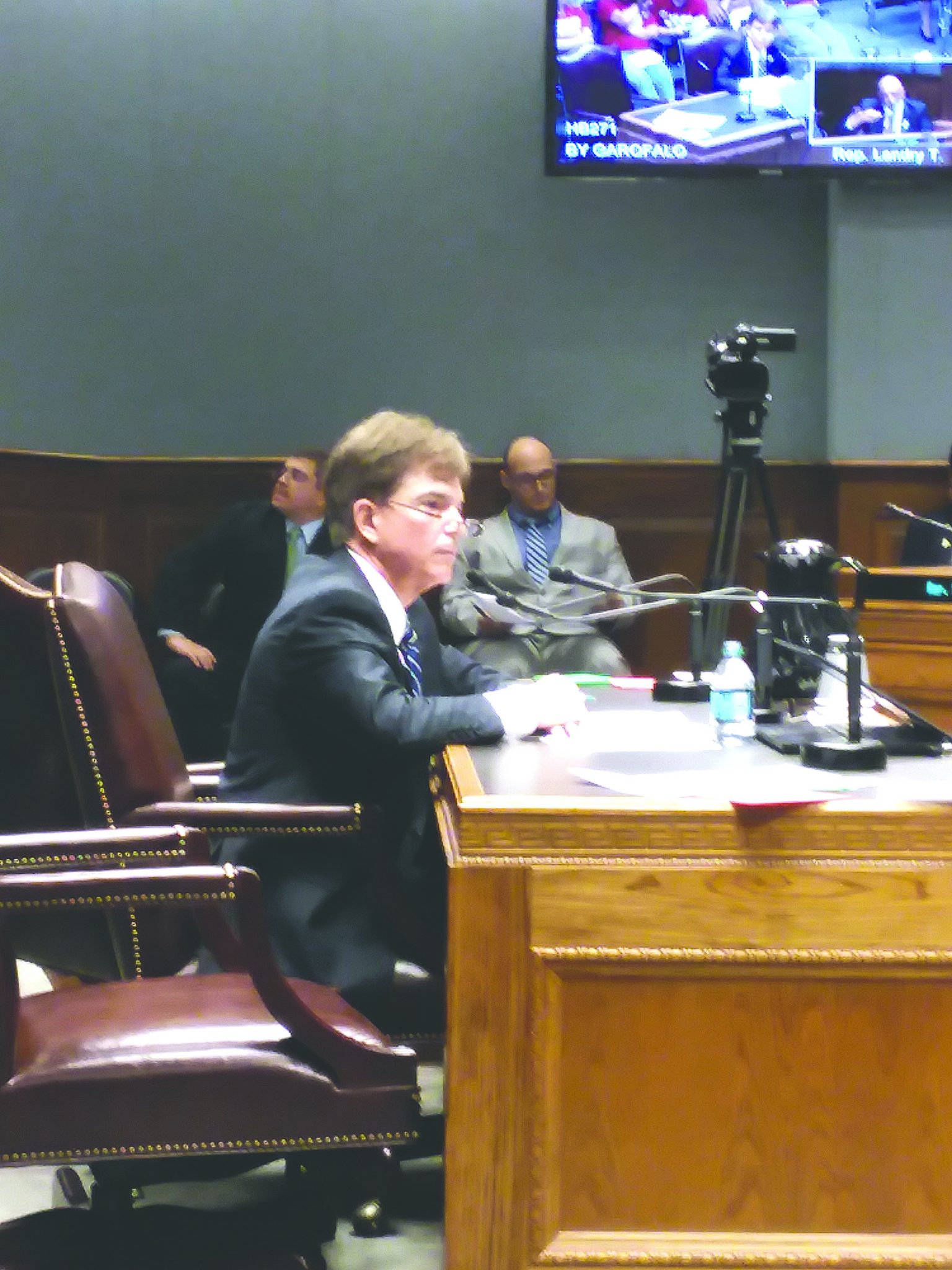Bill would have allowed concealed carry by some
Tryfon Boukouvidis
LSU Manship School News Service
BATON ROUGE – A House committee on Wednesday voted 9-7 to kill a bill that would have authorized some elementary and high school teachers and administrators to carry concealed handguns on school property.
Rep. Ray Garofalo, R-Chalmette, who sponsored the bill, said gun-free zones are “basically a welcome mat to criminals and crazies,” inviting them to “come slaughter our students.” He said the bill is “about taking off the welcome mat.”
“If you don’t get people the ability to protect themselves, you’re in trouble, they’re in trouble,” he added.
The bill did not require teachers to arm themselves. Garofalo asserted that it was “totally voluntary” on the part of teachers, school systems and individual schools.
Garofalo’s bill was one of several proposed by gun rights activists and critics after a spate of recent threats of violence and killings of high school students around the country.
Gun control is one of the most contentious issues before the Legislature, and the debate on Garofalo’s bill provided a glimpse at the divisions that are likely to arise as other bills are called up.
Democrats have proposed banning semi-automatic assault weapons, and a Senate committee voted 5-4, with support from one Republican, on Tuesday to prevent individuals under 21 from buying assault weapons. The minimum age now is 18.
Other Republican lawmakers have proposed fortifying schools, arming school workers and having children wear bulletproof backpacks. Gov. John Bel Edwards has said he opposes arming teachers but supports having law-enforcement officers on school campuses.
Under Garafalo’s bill, teachers and administrators carrying concealed handguns on school property would have had to certify they had met the mental health criteria required to obtain a concealed handgun permit.
They also would have had to complete a training course in basic school policing, including crisis management, active shooter scenarios, gun safety and control and accident prevention.
“We set the bar very high,” Garofalo said. “There are a lot of hoops that have to be jumped through before anyone will be able to carry on campus.”
Rep. Valarie Hodges, R-Denham Springs, agreed that the bill required “very rigorous training.” It is the “same training as policemen have.”
Dan Zelenka, president of the Louisiana Shooting Association, which is affiliated with the National Rifle Association, said the organization’s members favor ending gun-free zones altogether as “signs don’t deter criminals.”
Rep. Raymond Crews, R-Bossier City, argued that “deterrence is the primary mission of the Army” and the bill would have helped schools achieve that.
Black Caucus members of the committee fiercely opposed the bill.
Rep. John Bagneris, D-New Orleans, exclaimed: “We want teachers to be policemen now? We don’t pay them enough to teach.” He added, “We have an obligation to keep the teachers and the children safe, but I do not think another gun on campus is a good thing.”
Rep. Barbara Norton, D-Shreveport, was also against the bill. “I’m really trying to figure out when we as elected officials go start telling the truth about guns and what we need to do,” she said. “I look at your bill,” and “it doesn’t make sense,” she told Garofalo.
Rep. Terry Landry, D-New Iberia, who is a Vietnam veteran and a former police officer, added that people should consider the adrenaline and the fear associated with using a gun.
Instead of the solution proposed by the bill, he recommended that the state properly fund mental health and pass “sensible gun laws” to “make it difficult for a person to get a gun.”
Larry Carter, president of the Louisiana Federation of Teachers, said the bill “is the wrong solution for the problem of mass shooting at schools” as 75 percent of teachers oppose being armed.
“We don’t arm bank tellers when banks are robbed,” he said. “We could be smarter about how we build and secure our schools.”

